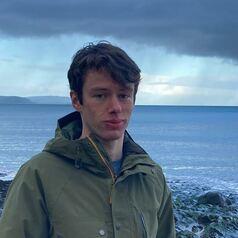
Paddy Brennan
PhD candidate, Institute of Irish Studies, University of Liverpool
Paddy Brennan is a Blair Chair Scholar at the University of Liverpool's Institute of Irish Studies. He is currently researching a PhD exploring the depiction of consumption and self-starvation in 20th and 21st century Irish fiction.
Less ![]()

Padraic J. Dunne
Dr Pádraic Dunne is an immunologist, practicing psychotherapist and meditation teacher, based at the new Centre for Positive Psychology and Health (CPPH), Royal College of Surgeons in Ireland (RCSI) University of Medicine and Health Sciences. As an RCSI Lecturer, Dr Dunne is interested in the development of Health and Wellbeing programmes for postgraduate healthcare professionals, corporate work forces, as well as for patients suffering with chronic disease and the general public.
Less ![]()
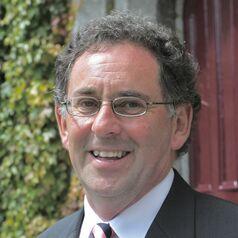
Padraic Kenna
Professor of Law - Housing and Property, University of Galway
Professor Padraic Kenna lectures in land law, housing law and policy and housing rights, at University of Galway, having published some six books and over 50 journal articles on these topics. As Director of the Centre for Housing Law, Rights and Policy, he leads housing law, rights and policy research at national and European level: http://www.nuigalway.ie/chlrp/ Recent publications include Cost Rental Housing and Services of General Economic Interest (SGEI) http://www.nuigalway.ie/chlrp/news/nui-galway-report-supports-large-scale-state-investment-in-cost-rental-housing.html and Integrating EU Charter Housing Rights into EU Economic Governance and Financial Supervision http://www.nuigalway.ie/media/housinglawrightsandpolicy/files/Briefing-Paper-3-Integrating-EU-Charter-Housing-Rights-into-EU-Economic-Governance-and-Financial-Supervision
Less ![]()

Paige Coyne
PhD Candidate, Department of Kinesiology, University of Windsor
Paige Coyne (MHK) is a PhD candidate and active member of the Community Health, Environment, and Wellness laboratory in the Department of Kinesiology at the University of Windsor. She is a multidisciplinary researcher whose research interests lie in examining the physical, psychological, social, and environmental factors that impact health and other lifestyle behaviours, with a particular focus on social media.
Less ![]()

Paige Klimentou
Sessional Lecturer, Music Industry, RMIT University
Dr Paige Klimentou is a sessional lecturer and tutor at RMIT University. She graduated with her PhD in 2022, and her research focuses on fandom, feminism, and archiving by looking at band tattoos in the Australian hardcore scene. She is a member of the Music Industry Research Collective (MIRC).
Less ![]()

Paige Street
Senior Research Assistant, School of Design, Queensland University of Technology
Paige Street is a senior research assistant in the School of Design at the Queensland University of Technology and the School of Fashion & Textiles at RMIT University.
Less ![]()

Pål Vik
Senior Research Fellow, University of Salford
Dr Pål M. Vik is a Senior Research Fellow in sociology at Salford Business School and director of the research unit Community Finance Solutions. His research focuses on how households and businesses excluded from accessing banking services manage their money, the consequences for society and individuals, and the ethical alternatives to commercial high cost credit. Over the past 15 years, he has worked on over 40 funded research projects on the topic and has published over a dozen academic papers
Less ![]()
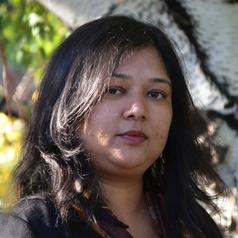
Pallavi Banerjee
Associate Professor of Sociology and University of Calgary Research Excellence Chair, University of Calgary
Pallavi Banerjee is an Associate Professor in the Department of Sociology and a University of Calgary, Research Excellence Chair. Her research is situated at the intersections of immigration, gender, families, unpaid and paid labour, intersectionality, and transnationalism. She is the author of the award-winning book The Opportunity Trap: High-Skilled Workers, Indian Families and the Failures of Dependent-Visa Policy published in March 2022 by New York University Press. Her other award-winning research has been published in many peer-reviewed journals including the American Behavioral Scientist, Gender & Society, Contexts, Canadian Ethnic Studies, Sociological Forum, Gender, Work and Organization, Women, Gender and Families of Color among others. She is the co-founder, and lead researcher of the Youth and Anti-Racism Integration (YARI) Collective - a critical intersectional, anti-racist collaboration that brings together researchers from the University of Calgary, newcomer youth of colour, community partners from four Calgary-based resettlement agencies, and creative professionals. She directs the Critical Gender, Intersectionality and Migration Research Group at the University of Calgary, and her research is supported by the Social Sciences and Humanities Research Council (SSHRC), Canada and Immigration, Refugees and Citizenship Canada (IRCC).
Less ![]()
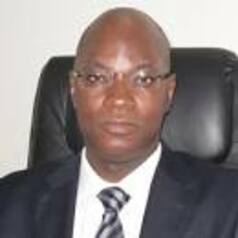

Paloma Trascasa-Castro
PhD Candidate in Climate Science, Barcelona Supercomputing Centre, University of Leeds
I am a postgraduate researcher looking at how different climate states modulate El Niño-Southern Oscillation (ENSO) and its impacts. My supervisors are Dr Amanda Maycock (University of Leeds), Dr Yohan Ruprich-Robert (Barcelona Supercomputing Center) and Prof Piers Forster (University of Leeds).
I obtained my undergraduate degree in Environmental Science at the Universidad Autonoma de Madrid (Spain). My BSc dissertation was focused on understanding how large-scale climate variability such as the North Atlantic Oscillation (NAO) affects local climate and weather conditions in Madrid, with a special focus on the urban heat island effect and air pollution episodes. I did a year abroad at the Universidad Nacional de Colombia, where I developed my interest for ENSO and its impacts on ecosystems and populations.
In 2018 I enrolled in an MRes in climate and atmospheric science at the University of Leeds. My masters’ thesis was entitled “European climate response to El Niño-Southern Oscillation”, which later on was adapted and published in Journal of Climate. In 2019 I co-founded “The Climate Press”, an outreach project aimed to bring climate science closer to everyone. We’ve produced a number of podcasts and blogs that you can find here: www.theclimatepress.com
During the early stages of my PhD, I worked as a demonstrator in the masters’ modules “Physical Science Basis of Climate Change” and “Climate Change Impacts and Adaptation”.
I am particularly interested in large-scale climate variability. More specifically, the first part of my PhD project consists on understanding how the Atlantic Multidecadal Variability (AMV) modulates ENSO and its impacts. My future research includes assessing ENSO and its teleconnections under climate change conditions. I enjoy learning about all things climate-related, especially climate change projections, climate extremes, teleconnections, seasonal forecasts and climate variability in the troposphere and stratosphere.
Less ![]()

Pam Longobardi
Regents' Professor of Art and Design, Georgia State University
Pam Longobardi’s parents, an ocean lifeguard and the Delaware state diving champion, connected her from an early age to the aquatic. She moved to Atlanta in 1970 and saw her neighborhood pond drained to build the high school she attended. Since then, she lived for varying time periods in Wyoming, Montana, California, and Tennessee, and worked as a firefighter and tree planter, a scientific illustrator and an aerial mapmaker, a collaborative printer and a color mixer. Her artwork involves painting, photography and installation to address the psychological relationship of humans to the natural world.
She has exhibited widely across the US and in Greece, Monaco, Germany, Finland, Slovakia, China, Japan, Italy, Spain, Belgium, Costa Rica and Poland. She currently lives and works in Atlanta as Regents’ Professor, Distinguished University Professor, and Professor of Art at Georgia State University. In 2006, after witnessing the vast amounts of oceanic plastics on remote Hawaiian shores, she founded the Drifters Project. Longobardi is a conceptual artist grounded in modalities of forensic investigation, action, collaborative process and social practice.
Less ![]()

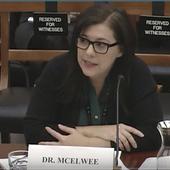

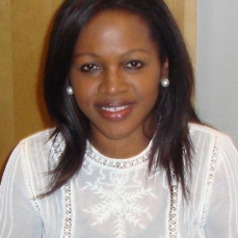
Pamela Ugwudike
Professor of Criminology, University of Southampton
Dr Pamela Ugwudike is an Associate Professor of Criminology, a Fellow of the UK’s Higher Education Academy, a Fellow of the national Alan Turing Institute for Data Science and Artificial Intelligence, and a member of the Alan Turing Institute’s Fairness, Transparency, and Privacy Interest Group. She has international expertise in multidisciplinary research on the ethics and governance of Artificial Intelligence (AI) systems, with a focus on data-driven technologies (such as predictive algorithms and online social networking platforms) that that inform criminal justice policy and practice.
Dr Ugwudike is also a co-Editor-in-Chief of Criminology and Criminal Justice Journal (the flagship Journal of the British Society of Criminology) and she currently sits on the Editorial Board of the following Journals: The British Journal of Criminology; Policing and Society: An International Journal of Research and Policy; and the European Journal of Probation. She is also a member of the advisory group for Ada Lovelace Institute's legal review of the governance of biometric data in the UK; the Howard League for Penal Reform’s Research Advisory Group; The Youth Justice Board’s Academic Liaison Network; and an alumna of the Welsh Crucible for Future Research Leaders
Less ![]()
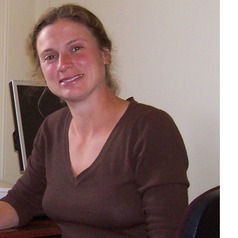
Pamela Woolner
Reader in the Use and Design of Educational Space, Newcastle University
Pam has a background in school teaching, but she has been researching educational environments for nearly two decades. She works with school communities to understand their use of their spaces, enabling her to develop an overview of the potential for school premises to support change and improvement.
Her work, bridging architecture, education and visual mediation methods, is unusual and she has been invited to provide expert input into projects and discussions regionally, nationally and internationally levels. Outputs have included an influential review, The Impact of School Environments (2005), a book for school users (the Design of Learning Spaces, 2010) and an interdisciplinary edited collection, School Design Together (2015) about participatory design of school space.
Her recent collaboration with the Council of Europe Development bank (CEB), Constructing Education (2021), proposes a framework to guide collaborative activities through planning and building educational premises so that design and use are in alignment. From 2019 to 2022, she led an EU-funded initiative, CoReD (https://www.ncl.ac.uk/cored/), which developed a suite of user-friendly tools and other resourcces that can be used by school communities to evaluate and improve their educational environments.
Less ![]()

Pamela L. Geller
Associate Professor of Anthropology, University of Miami
Pamela L. Geller is an associate professor of anthropology at the University of Miami. Over the years, she has conducted fieldwork in Hawaii, Belize, Honduras, Perú, and Haiti. Her intellectual interests include archaeology and bioarchaeology, feminist and queer studies, materiality of identity, the sociopolitics of the past, and bioethics. Based on her research, she has authored several books: The Bioarchaeology of Social-Sexual Lives (2017), Theorizing Bioarchaeology (2021), and Becoming Object: The Sociopolitics of the Samuel George Morton Cranial Collection (2024). Edited volumes include Feminist Anthropology: Past, Present, and Future (2006) and The Routledge Handbook of Feminist Anthropology (2025).
More recently, she has wondered, “What does it mean to be human in an age of unprecedented anthropogenic impact on this planet?” The question is a longstanding one for anthropology; it seeks to address how the human condition shifts with technological innovation and socioeconomic interaction, as was the case during the Neolithic or Industrial Revolutions. Yet rather than look to ancient periods, she is undertaking an archaeology of the contemporary that focuses on plastics as material culture in the 21st century. She is particularly intrigued by the cultural maladaptability, ontological and biophysical implications, and future history of plastics. On this subject, her writings have appeared in scholarly publications and mainstream ones, such as Slate, Miami Herald, and The New York Times.
Geller currently serves as the Specialty Chief Editor of Human Bioarchaeology and Paleopathology for the open-access journal Frontiers in Environmental Archaeology. She is also Series Editor for “Archaeology of Gender and Sexuality,” a book series with Routledge Press. Feel free to reach out with questions about submitting proposals or publications to either forum.
Less ![]()

Pamm Phillips
Professor, Deakin University
Pamm Phillips is a professor and program director for the Sport Management Program in the Department of Management in Deakin Business School. Her research is focused on volunteers (including referees) and sport development.
She publishes in highly ranked sport journals, is an editor of leading textbooks in sport management and sport development, and a member of the editorial board for leading journals in the field including Journal of Sport Management and Sport Management Review.
Pamm has led a longitudinal research agenda for the Australian Football League (AFL), evaluating their Junior Match Policy from 2012. This research has resulted in change of national policy for the management and practice of junior AFL and influenced the conduct of the professional women’s league. It has enhanced the delivery of the sport for more than 75,000 volunteer managers (coaches, referees/umpires, and managers); enhanced the participation experience for nearly 700,000 participants and provided the foundation for the delivery of Junior AFL policy that will facilitate girls to thrive in the sport.
Less ![]()

Panagiotis Arsenis
Senior Lecturer in Economics, University of Surrey
Panagiotis Arsenis is a Senior Lecturer in the School of Economics at the University of Surrey. His work primarily focuses on student employability in higher education. Specifically, his research is on work placements that many UK universities offer as part of their degrees. Panagiotis' work has examined different aspects of work placements, for instance, the factors that determine the likelihood of securing a placement and their earnings, as well as the effect of placements on graduate outcomes.
Also, Panagiotis led the introduction of employability modules to the School's curriculum, and he coordinates the first-year provision. He helps economics students improve their employability by raising their awareness through talks and individual consultations.
Less ![]()
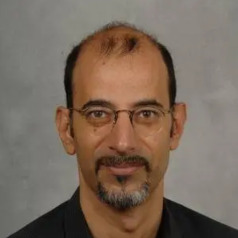
Panagiotis Tsiotras
Professor of Aerospace Engineering, Georgia Institute of Technology
Dr. Tsiotras holds the David & Andrew Lewis Endowed Chair in the Daniel Guggenheim School of Aerospace Engineering at Georgia Tech. He is also associate director at the Institute for Robotics and Intelligent Machines. His current research interests include nonlinear and optimal control and their connections with AI, planning, and decision-making, emphasizing autonomous ground, aerial, and space vehicles applications. He has published more than 350 journal and conference articles in these areas. Prior to joining the faculty at Georgia Tech, Dr. Tsiotras was an assistant professor of mechanical and aerospace engineering at the University of Virginia. He has also held visiting appointments with the MIT, JPL, INRIA, Rocquencourt, the Laboratoire de Automatique de Grenoble, and the Ecole des Mines de Paris (Mines ParisTech). Dr. Tsiotras is a recipient of the NSF CAREER award, the IEEE Technical Excellence Award in Aerospace Controls, the Outstanding Aerospace Engineer Award from Purdue, the Sigma Xi President and Visitor's Award for Excellence in Research, as well as numerous other fellowships and scholarships. He is currently the chief editor of the Frontiers in Robotics & AI, in the area of space robotics, and an associate editor for the Dynamic Games and Applications journal. In the past, he has served as an associate editor for the IEEE Transactions on Automatic Control, the AIAA Journal of Guidance, Control, and Dynamics, the IEEE Control Systems Magazine, and the Journal of Dynamical and Control Systems. He is a Fellow of the AIAA, IEEE, and AAS.
Less ![]()
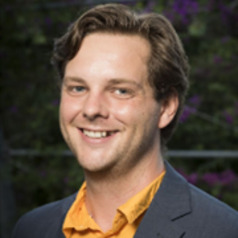
Pandanus Petter
Research Fellow Centre for Governance and Public Policy, Griffith University
I am postdoctoral research fellow working with colleagues here and in New Zealand to understand the historical and contemporary political uses of our shared phrase 'Fair Go' in an era of growing inequality. I also investigate the way politicians try to connect everyday people to the political process through the work they do in their electorates. I use a variety of methods and approaches such as digitally assisted archival text analysis, surveys, interviews and participant observation. With my work I hope to shed light on the strengths and weaknesses of our democratic system as it currently functions and point to the ways positive change can be brought about. This is especially vital in a time when the challenges we all face are too important for us to fall back on corrosive and disempowering cynicism.
Less ![]()

Pandora Patterson
Adjunct Associate Professor, Cancer Nursing Research Unit, University of Sydney
Dr Pandora Patterson is General Manager of Research, Evaluation and Social Policy at CanTeen and Adjunct Associate Professor in the Faculty of Nursing, Sydney Medical School, University of Sydney.
She has worked for ten years as a researcher in the area of psycho-oncology with a particular interest in measure development and intervention based research for young people living with cancer. She is also a registered psychologist undertaking regular clinical work.
Less ![]()

Pania Te Maro
Associate Professor, Massey University
Dip teaching, Dip Bilingual Teaching, BA teaching and learning, PGDip Professional Development, PhD Māori Education
Kaihautū Māori Institute of Education, Associate Dean Māori College of Humanities and Social Sciences, Kaiārahi Tiriti College of Humanities and Social Sciences.
Less ![]()

Pankhuri Agarwal
Postdoctoral Researcher, School of Management, University of Bath
Pankhuri is a Postdoctoral Research Associate in the School of Management at the University of Bath working on a 4-year UKRI project to interrogate the meaning of dignity in supply chains in India and the UK’s garment and IT industries. She completed her PhD in Sociology from the University of Bristol and an MSc in Development Studies from the School of Oriental and African Studies, University of London.
With over a decade of field and research experience working with marginalised workers, unions, government ministries, international and domestic humanitarian agencies, her research focuses on the: 1) critique of the anti-trafficking discourse and intervention; 2) use of multi-sited ethnography to study the lived experience of law and; 3) the impact of labour reforms at the intersection of migration and state bureaucracy.
As a result of her interdisciplinary research and activism across a global network of scholars and practitioners committed to the study of labour rights, her expertise has been sought by the Foreign, Commonwealth and Development Office, the UN Women South Asia Office, and others on a consultancy basis and her research has been supported by grants from the UK Home Office, J.N. Tata Endowment, Aga Khan Foundation, British Federation of Women Graduates, Socio-Legal Studies Association, to name a few. Pankhuri's research has appeared in peer-reviewed journals such as the Anti-Trafficking Review and Social Change and on public-facing platforms such as the Sociological Review, OpenDemocracy and Futures of Work.
Less ![]()
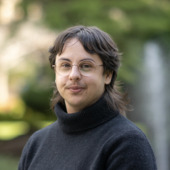
Panos Karanikolas
Research officer, Melbourne Social Equity Institute, The University of Melbourne
Less ![]()

Panu Pelkonen
Senior Lecturer in Economics, University of Sussex
Panu Pelkonen specialises in Economics of Education and Skills. His work on education connects to Political Economy topics such as voting and electoral cycles, Labour and Population Economics, as well as the underpinnings of productivity and economic growth. He is a Chevening scholarship alumni and has received a PhD in Economics from University College London in 2009.
Less ![]()
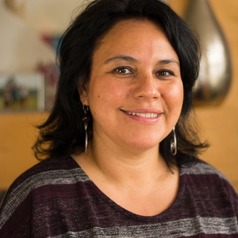
Paola Ardiles
Senior Lecturer, Health Sciences, Simon Fraser University
Paola Ardiles Gamboa (she/hers) is a Latinx practitioner scholar working on unceded Coast Salish territories. She has been recognized for her innovative, collaborative and inter-sectoral approaches to promote community health and collective wellbeing.
Paola founded Bridge for Health in 2013, as a local & global network focused on citizen & youth engagement to promote health & wellbeing. Bridge for Health was established as a co-op association, receiving the 2017 SFU Coast Capital Savings Venture Award for Social Impact for its efforts to advance wellbeing in the workplace. The co-op now focuses on building equity-centered practices in workplace health, engaging youth in policy-making, and using arts-based approaches as a decolonizing practice.
Paola has collaborated and led various knowledge mobilization and community-based research initiatives related to education, public health policy and social innovation. Currently, she co-leads an arts-based research project Art on the Go to promote newcomer youth engagement in policy making related to improving road safety in Surrey. She is also co-leading a community-based study understanding experiences of exclusion of foreign trained health professionals.
Since 2015, Paola has been at Simon Fraser University developing participatory and community-based experiential courses including the co-design of Health Change Lab, in collaboration with SFU RADIUS and the Beedie School of Business, City of Surrey, Fraser Health and many community based organizations. As the Faculty Teaching Fellow, she supported capacity building initiatives related to community-engaged and anti-racist education. Paola is an Associate with the SFU's Wosk Centre for Dialogue and recently Co-chaired Participedia’s Teaching Training & Mentoring Committee, a global network focused on public participation & democratic innovations.
Bilingual: Spanish/English, advanced French
Less ![]()


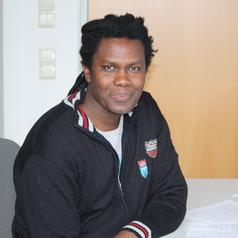
Papa Sow
Senior Researcher, The Nordic Africa Institute
Papa Sow is currently a Senior Researcher at the NAI-Nordic Africa Institute (Uppsala, Sweden) and he collaborates with IFAN (Institut Fondamental d‘Afrique Noire) University Cheikh Anta Diop, Dakar Senegal. His main lines of research are Migration dynamics, society and culture, and Natural resources and Environment. He worked and participated in several research projects in Europe and in West Africa, and published in international journals. Previous jobs: Consultant and Research Associate at the Catalan Fund for Cooperation and Development, Spain (2005-2006). Researcher at The Open University of Catalonia, Spain (2007-2009), Marie Curie Research Fellow at CRER - Center for Ethnic Relations– University of Warwick, United Kingdom (2009-2011). Senior Researcher at the Centre for Development Research – University of Bonn – (2012-2017). Senior Researcher at IFAN, University Cheikh Anta Diop, Dakar (2017-2020).
Less ![]()
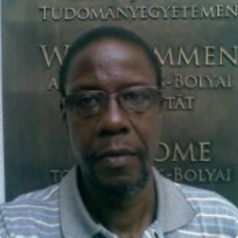
Pape Sakho
Maître de conférences CAMES, Université Cheikh Anta Diop de Dakar
Professeur Papa Sakho est Maître de conférences CAMES de géographie à l’Université Cheikh Anta Diop de Dakar. Il capitalise 30 ans d'expérience d’enseignement, de recherche et d’expertise sur les villes africaines. Il s’est intéressé particulièrement ces dernières années à la production urbaine par les transports et les mobilités y compris les migrations internes et internationales.
Professor Papa Sakho is a Lecturer in Geography at Cheikh Anta Diop University in Dakar. He has 30 years of experience in teaching, research and expertise on African cities. He has been particularly interested in recent years in urban production through transport and mobility, including internal and international migration.
Less ![]()
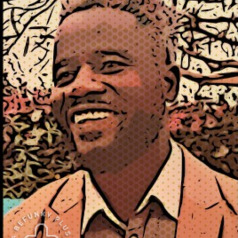
Pape Chérif Bertrand Bassène
Senior Lecturer, Université Cheikh Anta Diop de Dakar
(Eng) Lecturer in African (Senegal, Gambia, Bissau) and Atlantic history and memory, Cheikh Anta Diop University, Dakar. / (Fr) Enseignant chercheur histoire - mémoire de l'Afrique (Sénégal, Gambie, Bissau) et du monde atlantique à l'Université Cheikh Anta Diop de Dakar.
Less ![]()
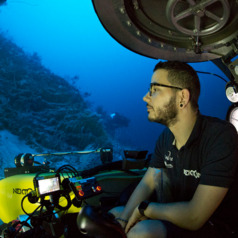
Paris Stefanoudis
Senior Postdoctoral Researcher, University of Oxford
I am a marine biologist fascinated by the largest environment on planet Earth: the oceans.
My general research interests lie in documenting the distribution patterns of marine life in the oceans and identifying the underlying environmental factors shaping those. Part of my research portfolio has included biodiversity assessments of ultra-deep underwater mountains in the NE Atlantic, shallow and deep water reef biodiversity in Bermuda, conservation of threatened species and plastic pollution in the Thames Estuary.
At present, I am a postdoctoral researcher of the Marine Ecology and Conservation Group at the Department of Zoology, working closely with the NGO Nekton. My main research focus lies in assessing biodiversity and faunal connectivity across depth and geography in tropical reef ecosystems, and assess the impact of human activities on them. For that, I am participating in a series of Missions in the Indian Ocean led by Nekton, known as First Descent: Indian Ocean 2019-2022.
Less ![]()

Parisa Ziaesaeidi
Associate Lecturer in Architecture, Western Sydney University
Dr Parisa Ziaesaeidi is an architect with experience in both academia and industry. She holds a PhD from the Queensland University of Technology in Australia. In addition, Parisa is an Associate Fellow of the UK Higher Education Academy. Parisa's research interests focus on social sustainability and neighbourhood design. She has experience in conducting qualitative studies using visual methods. Her expertise in this area is reflected in publications in international journals, conferences, and architectural magazines such as WAC, where she has established herself as an architectural journalist. Additionally, Parisa serves as a reviewer for several peer-reviewed journals. Parisa's accomplishments and background demonstrate her dedication to the field of architecture and her passion for promoting sustainable and inclusive design practices.
Less ![]()

Parissa Safai
Professor, Socio-Cultural Study of Sport, Health and Medicine, York University, Canada
Parissa Safai is a Professor in the School of Kinesiology and Health Science in the Faculty of Health at York University. Her research interests focus on the critical socio-cultural study of sport at the intersection of risk, health and healthcare including the social determinants of athletes’ health. Her interests also centre on sport and social inequality with focused attention paid to the impact of gender, socio-economic, and ethnocultural inequities on accessible physical activity for all. She is currently serving as Special Advisor to the President for Academic Continuity Planning and COVID-19 Response.
Less ![]()
- Market Data























